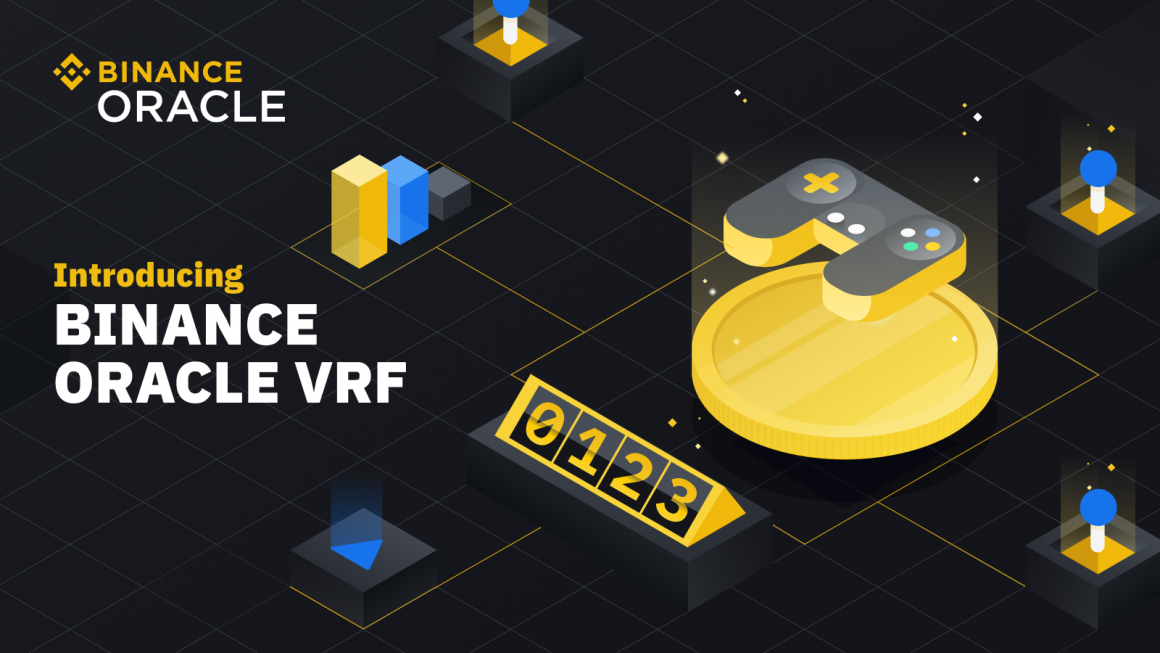Sponsored
Major harvest
- Binance Oracle VRF is a Verifiable Random Function (VRF) solution that allows blockchain developers to generate random numbers.
- Binance Oracle VRF can be used for a wide range of use cases, including GameFi projects and other blockchain products built on smart contracts.
- Learn more about how VRF works, why blockchain applications need randomness, and how Binance Oracle VRF can benefit your project or business.
Learn what you need to know about Binance Oracle VRF, powered by Binance Cloud and based on the latest Verifiable Random Function (VRF) standard.
What is a Verifiable Random Function (VRF)?
A verifiable random function (VRF) is a random number generator (RNG) whose output can be cryptographically proven to be random. The mechanism can be briefly summarized as follows.
- A series of inputs are passed to the VRF.
- VRF computes the inputs and generates pseudo-random outputs.
- The fact that the output is random can be cryptographically verified by anyone, at any time.
- All proofs are published and verified on-chain before the application uses the output.
Why do we need random numbers on the blockchain?
There are many different scenarios where blockchain applications need randomness. Some examples are.
- Create a blockchain-based game
- Assign tasks and resources.
- Pick a sample for a consensus mechanism.
For illustration purposes, let’s examine how randomness can help GameFi developers build blockchain-based poker games.
The developer must convince users that the poker game uses a fair and unbiased algorithm. For example, the deck of cards is shuffled randomly and no party, including the developer, can manipulate the game.
Blockchain developers can effectively prove randomness by showing how the numbers are generated through a trusted oracle provider, rather than using a black box algorithm that hides the internal structure of the game from the user. This way, users can be assured that their game is fair and unbiased.
Challenges to Randomness Generation
When generating randomness, a good output must satisfy four conditions: unbiased, unpredictable, verifiable, and instantly available.
Many blockchain developers find it difficult to generate on-chain randomness in their applications due to the deterministic nature of blockchain. On-chain generated randomness usually cannot satisfy unpredictability.
On the other hand, relying on a simple off-chain oracle provider may force developers to compromise on availability or, even worse, security. In some contexts, malicious
uncompromisingly reasonable pricing
Our clients, whether start-ups or enterprises, can gain access to Binance-grade products at prices lower than other solutions on the market.
Innovative technology should not come with a hefty price tag, and Binance Oracle VRF’s competitive pricing structure was intentionally designed. By keeping costs low, there are fewer barriers to entry for project teams with innovative ideas and use cases.
Security, Reliability, and Compatibility
Binance Oracle VRF is based on the latest VRF standards and is compatible with a wide range of blockchain platforms including Ethereum,BNBChain, and others. Most importantly, our system is rigorously tested and audited to ensure that no individual or group can tamper with Binance Oracle VRF results.
Designed for Accessibility
The seamless user experience of Binance Oracle VRF allows for easy integration of VRF and smart contracts. Our dashboard provides a simple and intuitive interface for monitoring requests, including costs, status, and RNG results. With minimal setup, project teams can begin generating cryptographically verifiable output.
Integrate with Binance Oracle VRF today
Binance is committed to providing developers with the tools they need to build innovative and secure blockchain applications.
Start building with industry-leading RNG solutions and experience the next generation of verifiable on-chain randomness. Try Binance Oracle VRF now →
Continued

